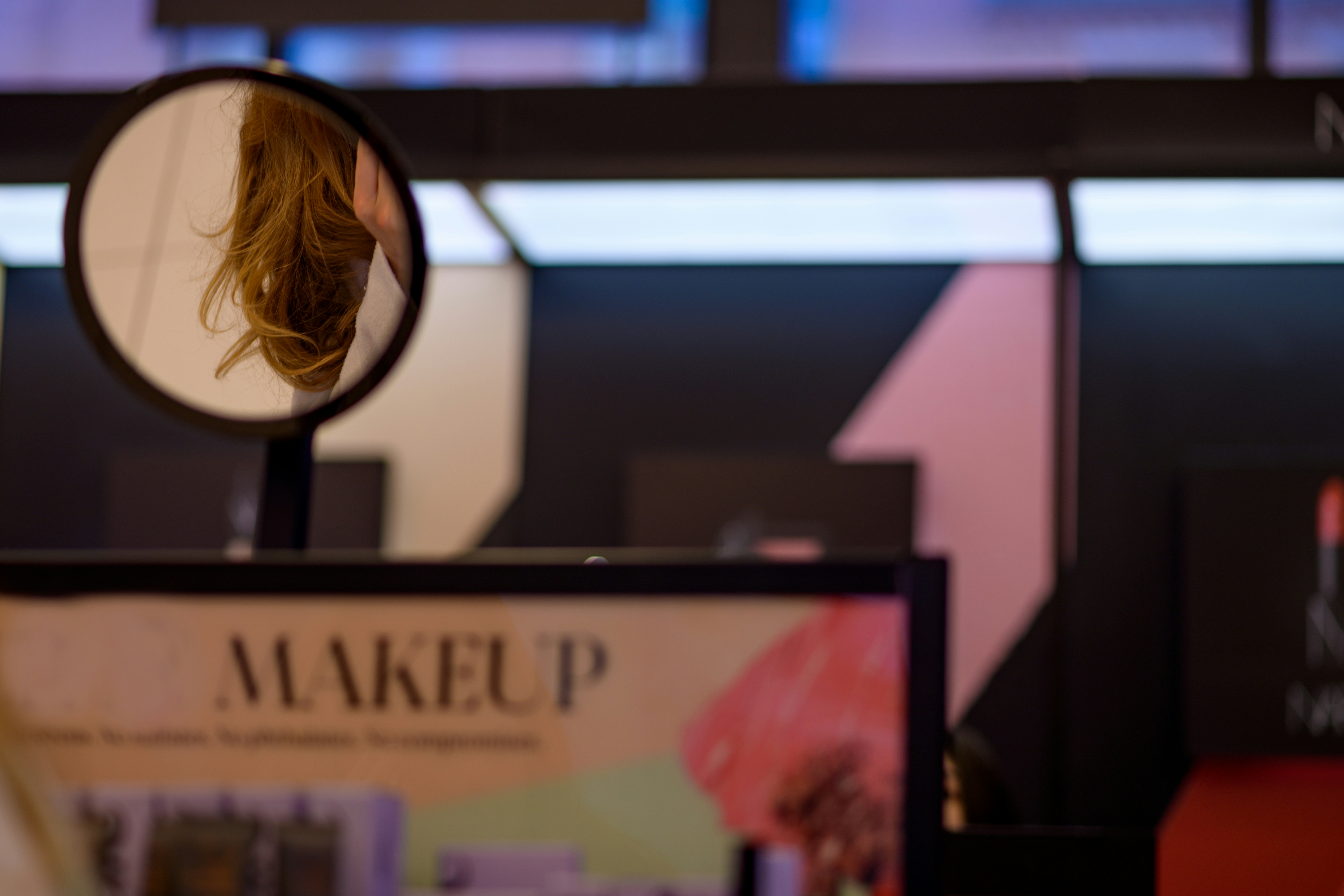Sticky Fingers In Sephora

Recently, social media discussions surrounding an age limit at Sephora have sprouted following complaints, from workers and customers alike, of disruptive children in stores. The first iteration of the trend started when TikTokers began sharing "storytime" style videos complaining about encounters with rude children in the makeup store. From there, the controversy only grew. People added their own experiences, created skits, and even recorded videos in Sephora showing destroyed displays and products surrounded by unattended minors. Some of these children have even accredited themselves as "Gen Alpha influencers." Thus creating the "Sephora ten-year-old" debacle: spoiled and demanding children, often unsupervised, running amok in Sephora. But where does the kids' obsession stem from?
Some speculate the rise in the younger generation wanting to participate in beauty is tied to influencers and social media culture. Brands like Drunk Elephant, Sol de Janeiro, and Rare Beauty have all had notable viral moments on social media; Rare Beauty’s blush alone generated $70 million in sales in 2022 because of TikTok. Drunk Elephant is specifically known for its colorful packaging, which many argue appeals extensively to children. The skincare line's products often become collectible items. The more popular these products become, the more their use becomes secondary to their aesthetic. Many attribute the success of these specific items to influencers who advocate for them on their platforms. The majority of the items that children are scavenging for tend to be the most recognizable influencer favorites. Oftentimes, these hyper-viral moments transform products from makeup items to accessories and status symbols; offering yet another form of idealized images constructed by social media.
Children are incredibly impressionable. Many argue that being bombarded with ads and sponsored content is bound to increase their consumerism in the long run. Yet, the harsh criticism offered online often comes from the same influencers who first introduced children to these products.
Some argue the blame should be placed more on the parents. AUP sophomore and former Sephora Employee, Alexandra Paquette, offered her experiences, “It was really common to have buses with tourists come in,” she recalled from her time at the Times Square location in New York, “... and these kids, like 8 to 12 years-old, would just sprint down the stairs and whoever was working at the the bottom of the escalators would freak out trying to get them to slow down.”
When asked where the parents were, she remarked, “They’re fifteen feet behind, not telling their kids to stop, just letting them go all over the place even though it’s so dangerous to sprint down the escalators like that.” The blaseé attitude of the parents funding these tweens may be more to blame than the influencers who push the products. Some suggest the children’s behavior directly results from too much unrestricted social media use allowed by guardians. Others think it’s new extents of the hands-off parenting style, which used to embody the idea of letting children make mistakes and learn on their own. However, it now revolves more around a lack of parenting in which parents fail to set rules and boundaries for their children. There are also ideas that Generation Alpha has more unprecedented behavioral issues than previous generations. Many attribute this to the rise of so-called “IPad kids,” or those born post-2010. These kids were more likely to have screen time from a very early age due to technology being more accessible and the Pandemic forcing children to miss important socialization.
In addition, some voiced concern about the products being intended for adults, not children. Children and adults have very different skin types; skincare ingredients can easily aggravate and harm still-maturing skin. Retinoids, for example, can increase the risk of sun damage, which may be amplified in the case of young children. "In general, we do not recommend using products containing high concentration of active ingredients, which address concerns that aren't present at such an age," said Drunk Elephant. When asked if any of their products are unsafe for children, they stated, "Yes. Younger fans, 12 and under, should not use [certain products] due to their very active nature."
Various external factors contribute to the ongoing debate surrounding ten-year-olds at Sephora. While concerns about property damage persist for the retail giant, it's clear that the crux of the issue extends beyond the mere presence of children. The societal challenges must be confronted to effectively address these specific issues caused by Generation Alpha.





